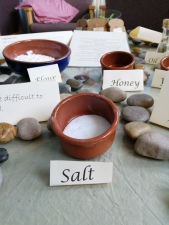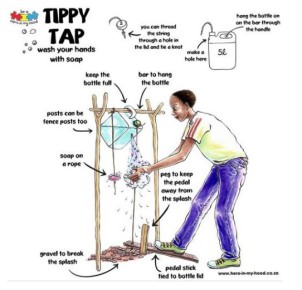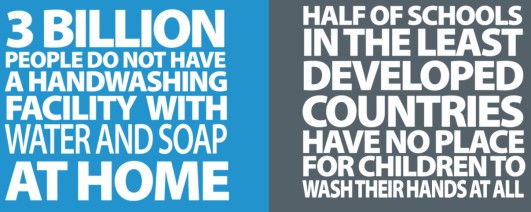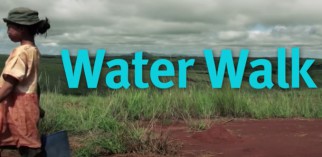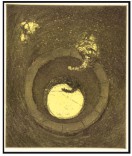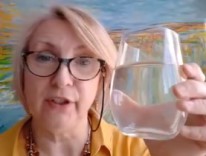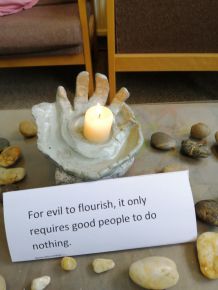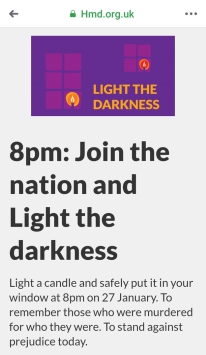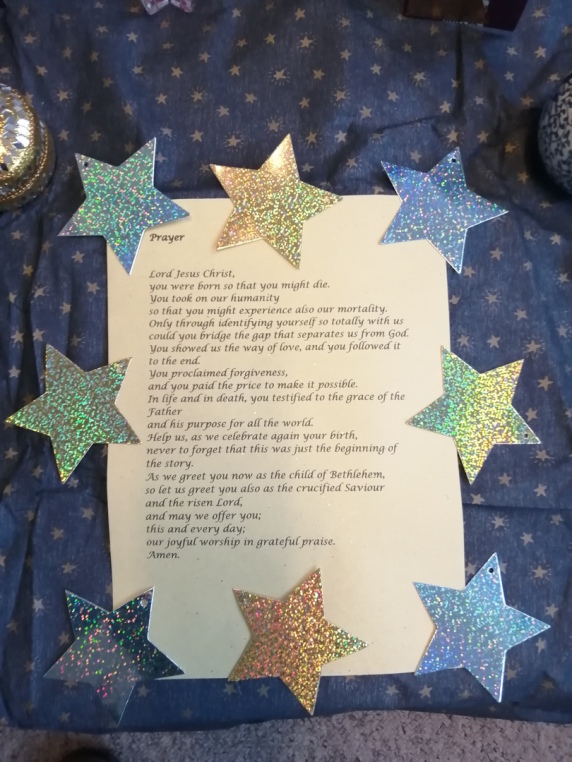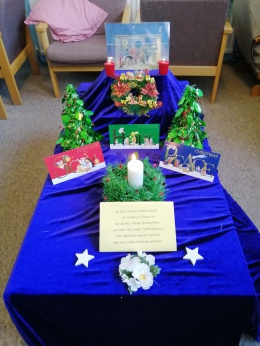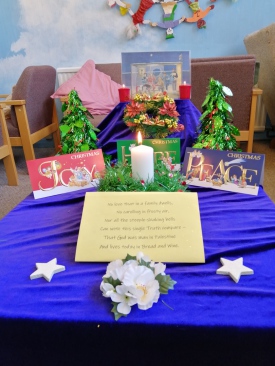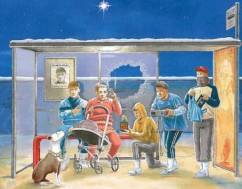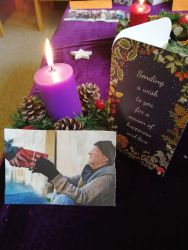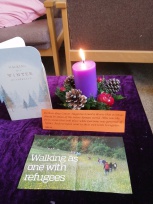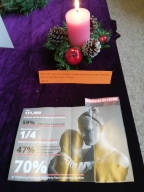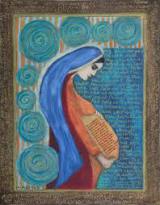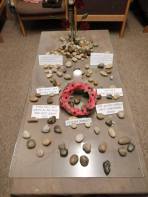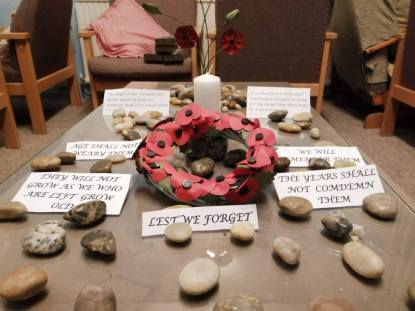Reflections
Welcome to our new page written by members of the SWE community. We hope that you will find solace and inspiration here, always mindful that God is with us.
Lent Reflections 2021 via Zoom
FOOT LOOSE OR FOOT LOCKED (DOWN)
Welcome to this reflection for Maundy Thursday entitled “Foot loose or Foot locked-down”
We have travelled far already this week.
If you have been baking your way through Holy Week with the recipes on our website then you will have been following instructions that lead you to try date slices, travel on the rocky road with biscuits from the heart and with Anzac, arriving today at the remembrance of a Seder meal and its importance to the Jewish Community. Today you may be making Charoset turnovers…..
Turnovers – how apt to bake a turn-over…Let’s remind ourselves of the story in John’s gospel when Jesus turned the disciples’ understanding of what it means to follow the Master on its head:
John 13: 1-18 – The Message Bible
Washing His Disciples’ Feet
Just before the Passover Feast, Jesus knew that the time had come to leave this world to go to the Father. Having loved his dear companions, he continued to love them right to the end. It was suppertime. The Devil by now had Judas, son of Simon the Iscariot, firmly in his grip, all set for the betrayal.
Jesus knew that the Father had put him in complete charge of everything, that he came from God and was on his way back to God. So he got up from the supper table, set aside his robe, and put on an apron. Then he poured water into a basin and began to wash the feet of the disciples, drying them with his apron. When he got to Simon Peter, Peter said, “Master, you wash my feet?”
Jesus answered, “You don’t understand now what I’m doing, but it will be clear enough to you later.”
Peter persisted, “You’re not going to wash my feet—ever!”
Jesus said, “If I don’t wash you, you can’t be part of what I’m doing.”
“Master!” said Peter. “Not only my feet, then. Wash my hands! Wash my head!”
Jesus said, “If you’ve had a bath in the morning, you only need your feet washed now and you’re clean from head to toe. My concern, you understand, is holiness, not hygiene. So now you’re clean. But not every one of you.” (He knew who was betraying him. That’s why he said, “Not every one of you.”) After he had finished washing their feet, he took his robe, put it back on, and went back to his place at the table.
Then he said, “Do you understand what I have done to you? You address me as ‘Teacher’ and ‘Master,’ and rightly so. That is what I am. So if I, the Master and Teacher, washed your feet, you must now wash each other’s feet. I’ve laid down a pattern for you. What I’ve done, you do. I’m only pointing out the obvious. A servant is not ranked above his master; an employee doesn’t give orders to the employer. If you understand what I’m telling you, act like it—and live a blessed life.
Here at Somewhere Else 21 years ago the Methodist Church was turned on its head. No more would there be Sunday services. No more would there be pews, notices, hymns and a choir, an organ and collection.
Instead, there would be the living Word of God, embodied, but not constrained, in the simple act of making, shaping, baking and breaking bread. Here we bring together inert ingredients to be transformed by the living power of kneading, through the Holy Spirit, into bread that transcends inequality & judgementalism, that crosses cultural, political, denominational and social boundaries to bring the bread of life alive in the hands, hearts and stomachs of the bakers and the eaters.
Here is the church let loose on an unsuspecting public.
Here we journey with the marginalised and the lost, the wonky and the wary.
Here as you cross the threshold (or at the moment, enter the Zoom code) is a welcome that offers a washing clean from worldly worries. Here you can kick off the sandals that have collected dust and grime along the road of hardship, stress and marginalisation, and be immersed in a community of Christ.
To make the bread that feeds physical hunger - our hands must be washed clean.
To make the bread that feeds spiritual hunger - our whole body must be immersed in the grace of our Lord.
“If you’ve had a bath in the morning, you only need your feet washed now and you’re clean from head to toe. My concern, you understand, is holiness, not hygiene” says the Lord…
If the pandemic has made you feel locked down, and you have been wearing your slippers more than your shoes for the past year – then you are not alone. If your wish to be foot loose has been supplanted by being foot locked down – then you are not alone. Many of us crave the physical freedom to hug, to eat out, to go on holiday, to just have “normality” returned.
We have been trapped, mentally and physically, for 12 months in pandemic paralysis.
But we are still surrounded by the love of God. He is still with us, washing us clean, tending our wounds and scars, wiping away the tears and washing our feet of the staleness and grime of lockdown. So this Maundy Thursday we should take heart that we are blessed. We are blessed because the Master loves us. We are blessed because he has shown us the way. We are blessed because we can throw off the slippers of lockdown, strip ourselves of the socks of Covid conformity and be washed through by the blood of Christ who died that we might live.
Tomorrow we must pass through the darkness of the Cross, the dirt and despondency of Christ’s physical death – sure in the knowledge that the cleansing, holiness and joy of resurrection is just around the corner.
To be spiritually foot-loose is to know that the living water of Christ will wash away the virtual desert sand of lock down so that we can, as Martin Luther King knew from his “dream” be free at last, free at last – thank God Almighty we are free at last. Amen.
Our Lent reflections have focussed us on the 6 ingredients of bread. How have those helped you to journey through Lent to the time of
Good Friday Eve?
Do you feel in any way cleansed by the experience of this Lenten journey?
Have you felt empowered to take your “bowl and towel” to others to help them in this pandemic?
How would you like to commemorate being foot-loose again – physically & spiritually?
Listen to Andrew via our FACEBOOK page and reflect on these questions.
Lent 6 - Salt: Balance and Preservation - 23/3/2021
Josie, our Vincentian Volunteer, reflects on salt in our final week of reflections based around the ingredients of bread.
We probably all have salt in our homes right now. It wouldn’t be difficult to go and get some. But if the supermarkets stopped selling it, would you be able to
produce it yourself? Maybe, but it would hardly be easy! I don’t suppose your first move would be to head to a salt mine to try and extract rock salt - perhaps you’d travel to the sea to get some of
the salty ocean water. How much salt do you think there is in a litre of sea water?
It’s about 35g of salt per litre of water. So it’s just as well we don’t drink it! That’s 6 or 7 times the amount of salt we’re recommended to eat in a day. So in some ways salt isn’t scarce at all -
but it is of course relatively difficult to extract and get to you.
Salt has been produced since at least around 6000 BC - we have evidence of early salt works in China and eastern Europe from around this time. Salt has been traded
extensively over the years - the Romans built salt roads like the Via Salaria, carrying salt from Ostia to other parts of Italy. Cakes of salt have even been used as a currency at times in Ethiopia
and other parts of Africa. All in all salt was in the past much more expensive and valued than it is here and now today.
So what about here and now today? At least for me, when I think of salt I’m thinking of it as an ingredient in food. In our bread recipe at Somewhere Else it adds
flavour and acts as a preservative, and these are of course important uses of salt throughout history. Do you want to guess what percentage of salt produced in Europe today is used for food
purposes?
It’s actually about 6 or 7%! This seems like a really low proportion to me, but salt is apparently important in lots of industrial processes to manufacture other things,
and salt is also used for things like de-icing roads and agriculture. Salt helping along agriculture is interesting, because if the ground is too salty it’s difficult for plants to grow. This is an
image we see again and again in Scripture: the idea that salty land is a wasteland or salting someone else’s land will ruin it. There was an ancient practice that sometimes the victors in a war would
scatter salt over a defeated city to prevent plants from growing there.
So in food and in the soil the amount of salt is important. A little salt can be good for our health, but too much can be damaging; a little salt in a dish can be tasty,
but too much makes it inedible; a little salt nourishes plants but too much ruins them. Salt is toeing the line between preserving and destroying, valuable and cheap, delicious and disgusting.
Balance is important here, as it is in Creation and in our relationships.
So with all these properties of salt in mind, let’s look at some scripture and have a discussion about what the image of salt brings out for us in these passages. Salt
is important in several stories, most famously perhaps being Lot’s wife turning into a pillar of salt, and Jesus describing people as ‘salt of the earth’.
But here I’d like to look at 2 other images which are slightly less familiar - to me at least. The first of these two is the idea of a ‘covenant of salt’.
In Leviticus 2:13 we have:
“Put salt on every grain offering, because salt represents the covenant between you and God.”
In Numbers 18:19 we have:
“Whatever is set aside from the holy offerings the Israelites present to the Lord I give to you and your sons and daughters as your perpetual share. It is an everlasting covenant of salt before the
Lord for both you and your offspring.”
And in 2 Chronicles 13:5:
“Don’t you know that the Lord, the God of Israel, has given the kingship of Israel to David and his descendants forever by a covenant of salt?”
So, why describe a covenant between God and Their people as being related to salt? Which properties of salt make it an image of covenant with God?
The other image from scripture I’d like to look at is from Mark 9. Jesus has just been talking about, you know, ‘if your hand makes you lose your faith, cut it off!’,
and all of that. Then he says
“Everyone will be purified by fire as a sacrifice is purified by salt."
“Salt is good; but if it loses its saltiness, how can you make it salty again?"
“Have the salt of friendship among yourselves, and live in peace with one another.”
So Jesus refers back to the idea of salt in sacrifices, and brings in this idea of purification. He asks, slightly cryptically, how salt which has lost its saltiness can
be made salty again. And then he talks about ‘the salt of friendship’. What might that mean?
Reading those verses again:
“Everyone will be purified by fire as a sacrifice is purified by salt."
“Salt is good; but if it loses its saltiness, how can you make it salty again?"
“Have the salt of friendship among yourselves, and live in peace with one another.”
So what do these verses bring out for you? Especially maybe, what does it mean to ‘have the salt of friendship among ourselves’?
Prayer from Rev Liz Crumlish, Church of Scotland:
There is no part of life
you do not touch, O God,
infusing your rich fragrance— gritty and real—
getting in underneath the surface,
drawing out and lifting up winding love around
until defences are lowered, barriers broken down
and the power of your love reveals the beauty
you intended for all your children.
May our actions draw attention to you,
to the richness you bring to all life
and the abundance you share,
setting the scene for us to share too.
Help us to bring light
into all the darkness of life, spreading hope for a better world,
a world where justice is made real by your children living together
in harmony.
Help us to bring salt
into the blandness of life,
encouraging vitality and joy in living
in a world that dares to hope
for the future that you promise
where all your children will know themselves
loved and valued
and treasured,
created in your image,
bringing you glory forever.
Amen.
Missed the meeting then watch Josie discuss Salt and the "salt of friendship" here.
Lent 5 - Oil: Mental Health in Lockdown - 16/3/2021
Heather, our bread facilitator trainee, member of the community and trustee discusses oil.
This week’s reflection as part of our Lent series, is on the theme of OIL.
Oil is the fifth ingredient in the SWE bread recipe and serves several purposes in the loaves we make.
Only a small amount is added – ‘a drizzle’ - or the amount that fills the bread maker’s initial, drawn in the flour in the bowl with their forefinger. The significance of ‘putting yourself into the bread’ in this way is, however, huge.
As you know, SWE loves acronyms and while reflecting on the subject of OIL, I found its description in its letters. OIL is an:
‘O’ – organically
‘I’ – improving
‘L’ – lubricant
OIL is an organic product; it is pressed from olives, walnuts, rapeseed, corn and soya, to name but a few. For bread making, rapeseed, corn and sunflower oil are best because they are the lightest and do not impart too strong a flavour.
OIL improves the bread by enriching it, giving it a softer, finer crumb and helping it resist going stale.
OIL is also a lubricant, stopping the loaves sticking to the baking pans, making it easier to create a ‘beautiful’ finished product.
But what of OIL beyond bread making?
In the Bible, references to OIL (there are more than 200 of them!) are mainly associated with ‘anointing’. (taken from NIV)
Psalm 23:5
You anoint my head with oil; my cup overflows.
Matthew 6:17
But when you fast, put oil on your head and wash your face,
Sometimes it is OIL that provides light:
Exodus 27:20
Oil for the Lampstand
“Command the Israelites to bring you clear oil of pressed olives for the light so that the lamps may be kept burning.”
OIL’s healing properties are also well-known:
Luke 10:34
He went to him and bandaged his wounds, pouring on oil and wine. Then he put the man on his own donkey, brought him to an inn and took care of him.
Mark 6:13
They drove out many demons and anointed many sick people with oil and healed them.
I wonder what you see as the significance of OIL for us in today’s world?
OIL seems to have had a fair bit of bad press recently, especially in the arenas of ecology and climate change.
Huge swathes of rainforest are being cleared at an alarming rate to grow palm oil, a cash crop. This is having a devastating effect on our planet, accelerating
climate change. Anti-palm oil campaigns are trying to de-incentivise this activity.
Oil slicks have caused irreparable damage to coastlines and wildlife over the past several decades.
Fossil fuels, millions of years in the making, are becoming scarcer as demand continues to increase. Alternative energies are gaining ground, helping to reduce
carbon emissions, but not quickly enough to avert an ecological disaster. SWE is going for the Eco church Bronze Award in this year of “Cop26”: perhaps our last real chance to get all countries on
board to work together to reverse the effects of climate change…
I have also been reflecting on possible links between OIL and mental health.
During the past year, we have seen big increases in depression and anxiety as we have been confined to our homes for many weeks at a time. The full impact of the pandemic on the mental health of the world is not yet apparent, but I am sure fear for and of the future will have impacted all generations, sometimes with debilitating consequences.
Just as OIL is formed by crushing organic elements, with the resulting product used to improve and lubricate other processes, many people are feeling crushed by life experiences, especially at this time of the Covid-19 pandemic.
In biblical times, olive oil was used to provide lamplight, the light that is so important to those who today suffer from what we know as SADS. Light that provides hope for better times to come.
Our mental health is under exceptional pressure at the moment. I wonder… Can we provide the oil that helps smooth the pathway and enables forward motion on life’s journey for those we know who are struggling in this way?
How can you be the OIL for others?
Follow this link to listen to Heather read her reflection.
Lent 4 - Honey: The Sweet Things in Life - 9/03/2021
Robert, a member of our community and trustee discusses honey.
This third week of Lent we are reflecting on Honey, which we use in our bread making process to feed the yeast that will enable the bread to rise.
When I was first asked to write this reflection, my first thought was of two quotes:
The first from Mahatma Gandhi
"Like the bee gathering honey from the different flowers, the wise person accepts the essence of the different scriptures and sees only the good in all religions"
and the Proverb :
"You can catch more flies with honey than with vinegar."
Or to put it another way… It is easier to persuade others with polite requests and a positive attitude rather than with rude demands and negativity.
I then thought we should consider the properties of honey :
It is a good source of antioxidants, it also has antibacterial and antifungal properties, it can be used to heal wounds, it can help with digestive issues, used to soothe a sore throat and it is a phytonutrient powerhouse.
We know that honey is sweet and pleasant, also it has medicinal qualities. What does this tell us about how God want us to be like honey that help him be The Bread of Life to our hungry world?
Scripture tells us God wants us to be kind ,loving, generous to everyone even those who it is hard to love - and there are many passages of scripture including Ephesians 4:32,Luke 6:35,Colossians 3:12 & Micah 6:8 which encourage us to reflect on The God who is Love to The World and to try and see the face of Christ in everyone we meet.
To God whether these acts are grand or small they are just as important (remember the widows Mite (Mark 12:41–44, Luke 21:1–4 ) where a woman put only two small coins into the temple treasury but because she had put in everything she had, God sees not the size but the love and generosity that lays behind it).
Never under estimate the power of a smile, a kind word or the power of a frown and rudeness, you can raise someone up or bring them down.
This is clearly encouraged in the parable of the sheep and the goats (Matthew 25:31-46), where we are told to feed the hungry, visit the sick, give a drink to the thirsty , clothing the naked and be kind the stranger (refugee).
Matthew 25:31-46 and Hebrews 13:2 (Do not neglect to show hospitality to strangers, for by this some have entertained angels without knowing it) to me these two passages of scripture are at the heart of the work and spirit of Somewhere Else, where the community tries to live by its "Code of Respect".
If we try to do a good deed each day and say a positive and supportive word each day, it will soon come out as a way of life to us, as natural as breathing.
I feel the following quote from St Gregory of Sinai sums this up well:
Like a bee one should extract from each of the virtues what is most profitable.
In this way, by taking a small amount from all of them, one builds up from the practice of the virtues a great honeycomb overflowing with the soul-delighting honey of wisdom.”
And Ilias the Presbyter – in the 12th Century wrote
'Traversing the fields a bee gathers the ingredients for honey; traversing the ages the soul infuses sweetness into the mind.'
For me if we are to be the honey, one of the ingredients of The Bread of Life we must remember the Latin phrase : "where there is charity and love, God is there "(ubi caritas et amor Deus ibi est). So we should go and make HIM present in the world by:
our smiles,
kind words,
something as simple as letting someone go before you in the queue,
Don't just walk pass the homeless person but stop say hello/good morning/good afternoon, just try and think of what you can in any small way show that you care.
I would like to share with you a blessing I found for Honey:
A prayer to bless new honey
O Lord Jesus Christ, Whose mercies cannot be contained and Whose bounties are ineffable; Who are wondrous in glory and Who works miracles, Who by the operation of the Holy Spirit once blessed Israel
and nourished them with honey from a rock: As the same Lord, look down now from above on this Your work, and with Your heavenly blessing bless and consecrate this honeycomb and the honey that comes
from it. Grant to it the action of a blessing beyond all perfection, so that all tasting of it, receiving it and eating it, may find good health, and by this nourishment be satisfied and filled with
all good things. For You are He Who bestows all good things, and to You we ascribe glory, together with Your Father Who is without beginning, and Your Most-holy, Good and
Life-creating Spirit, now and ever and unto ages of ages. Amen.
Robert
Click on the image or here to listen to Robert's reflection on Honey, which is read by Andrew.
Lent 3 - Water: Water security and the Environment - 2/03/2021
Lorraine, our administrator and pastoral assistant discusses water.
Water Security
Have you heard the raindrops drumming on the rooftops?
Have you heard the raindrops dripping on the ground?
Have you heard the raindrops splashing in the streams and running to the rivers all around?
When you hear the word water what do you think of? Perhaps you think of the rain pouring down, refreshing the ground and providing us with water to drink. Do you think of floods or tsunamis, showing the power of water? Or do you think of the following, which is the chorus to the song above?
There’s water, water of life,
Jesus gives us the water of life;
There’s water, water of life,
Jesus gives us the water of life.
Christian Strover/Jubilate Hymns taken from Complete Come and Praise
Whatever image you have, can you imagine life without water?
For many communities around the world water is precious. Something not to be squandered as a tap might overflow.
The charity https://www.toilettwinning.org, as result of the pandemic which began last year, diversified into helping to provide not just standpipe taps in villages in the following countries to help to protect the people: Democratic Republic of Congo, Ethiopia, Uganda, Gautemala and Nepal, but also tippy taps.
One tap costs just £60 to help to install and educate the community. Not a vast sum of money, when a coffee and a cake can come to nearly £5 in some establishments in our own country.
Did you know....?
Image from www.toilettwinning.org.uk
Have you ever had to do without water or ration it? Perhaps you remember the standpipes in the streets during the long, hot summer of the 1970’s or do you ever go camping and have to carry the water back to your tent? Just a short walk across a field with a heavy container and yet in some parts of the world this is an 8 mile round trip. How long would you be able to carry a 5 litre bottle?
I’d like to share this clip with you from the Water Aid website. It was filmed before the pandemic about one girl’s walk for water every day.
Are you drinking the Water of Life?
Water refreshes us, sustains us and is an essential part of our being.
During Lent, we are using this time to think about the ingredients of breadmaking that are essential to each other. Water is one of the main ingredients, without it there would just be dry powder. Christian Strover, who wrote the above song also writes “Jesus gives us life if we drink the living water, sing it so that everybody knows.” The ‘living water’ is mentioned when Jesus teaches about the Love of God and the love that we should show for each other.
This is a picture of the Samaritan woman at the well painted by the Brazilian artist Alexandre Bettnin. Can you see how Jesus’s arm is welcoming her?
In the story of the woman at the well in John 4, we are told that God gives us living water. He tells the woman, “Everyone who drinks of this water will be thirsty again, but those who drink of the water that I will give them will never be thirsty. The water that I will give will become in them a spring of water gushing up to eternal life.” V. 13
How are you living through Lent?
Are you spending time reading your Bible, to ‘drink’ the living word of God and most importantly are you “singing it so that everybody knows?” In our Candlemas service, we talked about being creative through Lent.
Lent doesn’t have to be a time of giving up things. We should make it a time of recommitting to God and using this time to share the Living Water with others.
God is always with us: providing the rain.
A prayer by Barbara Glasson from
Reflections on the Water -
about the glass of water at our bedside.
Thank you God,
For the rain that has filled the reservoir,
For the pipe leading under the street
To my house,
The stopcocks under the sink,
For the steel cold tap,
For this clear glass
And clean water
Forgive me for taking it for granted,
As I stretch out my hand in the night
To drink it
May I reach out my hand in the day
To those for whom clean water
Is not within reach.
Amen
If you missed the Lent Reflection on Zoom, then click here or on the picture to hear Lorraine discuss her thoughts.
Lent 2 - Yeast: New Life in Lockdown - 23/02/2021
Chris, our OPP for 2020-2021 discusses yeast.
For the Lent series of reflections, we are looking at the six ingredients of our bread recipe and how they can be used by God in other ways than ‘bread alone’ (Matthew 4:4). This week, we are focusing on the yeast.
Parable of the Yeast:
Jesus said ‘What shall I compare the kingdom of God to? It is like yeast that a woman took and mixed into about sixty pounds of flour until it worked all through the dough’.
Luke 13:20
This verse from Luke Chapter 13 happens to be the shortest parable in the Bible, which I find is quite fitting for the message it is portraying: that such powerful growth through such a large community can spread from such small and humble beginnings. This parable shows how once the catalyst of yeast is added into the mix, it can be worked through the entire 60 pounds of flour, bringing billions of individual and unique grains of wheat together to form dough which will rise as one body ready to make bread, a metaphor of new life. Yeast is what breathes this new life into the flour, quite literally.
The idea of a small beginning spreading around a community infectiously and uncontrollably is certainly not unfamiliar to us at the moment, is it? With all the negative thinking that the pandemic has brought us and surrounded us in, we could see the yeast in this parable as a certain species of bat in Wuhan perhaps? Or we could see it as an unchecked arrival at Heathrow from abroad? Or even as some false information being spread around social media about the vaccine?
Each of these things are small sources which have led to large spreads around communities with drastic effects. And they are so easy to focus on at the moment, with all we hear from the news being Coronavirus, infection rates, lockdown. It is easy to get caught up in the destruction that has come with Coronavirus: the loss of loved ones, the loss of jobs, the lack of much needed and craved interaction with our closest friends and elderly relatives. However, what differentiates these small negative sources of growth from the yeast that Jesus is referring to in the parable in Luke 13 is that they do not bring new life.
The yeast that brings us new life is something spiritual and inherently good, sourced from God’s love for us. It has a much greater r-number or r-rate than any Earthly virus. When God mixes his heavenly yeast in us as the flour, the warmth and the mixing that we as his children then do as a result of his spirit, mixes, churns and spreads it around the rest of the community, activating more yeast, requesting God for more of it. And as we do this we resemble what God wants us to be: kind, patient, humble, loving, gentle, and so on.
Another thing about this yeast however, is we rarely see it working in real time. It is so slow and silent that we do not notice the uplifting it is doing around the dough/around our community. It’s not until we look back, or return to it that we see how much growth has occurred. Before yeast was understood many years ago, dough was left out in the open for wild yeast cells in the air to settle and have the same effect over a much longer period of time. So, even though we can’t see it working, that is not to mean that it is not. Especially now when it is so hard to comprehend how God can be the active ingredient in what is going on in the world today. But new life is all around us as God is working his Yeast through the dough.
So, my first question to us all is this: what examples are we seeing around us of the yeast bringing new life during these strange times? What signs of God’s love are present but go unnoticed by the majority?
For me, it’s the signs of spring that I see on my walks: the snowdrops pushing through the soil, the birds singing louder to one another. My partner Oliver always reminisces this time of year about growing up working on a farm where he would usually be up all night lambing, seeing first hand new life coming to the fore. Or it could be something more personal and intricate, the yeast could be providing you with a different perspective now you have had the chance to spend time at home, with family.
What do you think?
My second question is about what we can be doing to encourage the growth from God’s yeast – let’s call it the Holy Spirit – and what can we be doing to be more aware of it?
We all know at Somewhere Else that – though it work anyway – our yeast in a breadmaking session works a lot better with a little encouragement. Whether that be using warmer water or adding a drop of honey. This all helps give the yeast a head-start, inviting it to do its work. Similarly, though the Holy Spirit works all the time, often unnoticed, there are things that we can be doing to invite it in, to encourage its work in us and around us. How do you think we can best be doing this during lockdown?
One of the best ways is through prayer. Let us pray:
Father God, we thank you for this opportunity to come together over Zoom
To reflect on the gifts of the spirit that you provide us.
We praise you for how your yeast is always present in our dough.
May it continue to breathe new life in us as we proof during these difficult times.
We ask that it does this until it fills your entire kingdom,
And may we be shining examples of what it means to be a part of it. Amen.
Chris speaks about Yeast on our Facebook page. Click here or on the picture to hear him.
Lent 1 - Flour: Our Winter Wheat Project - 16/02/2021
Laura, a trustee of SWE and Methodist Chaplain for the Liverpool Universities discusses flour.
Growth in hostile conditions
2 Corinthians 9:6-10 from The Message Bible
6-7 Remember: A stingy planter gets a stingy crop; a lavish planter gets a lavish crop. I want each of you to take plenty of time to think it over, and make up your own mind what you will give. That will protect you against sob stories and arm-twisting. God loves it when the giver delights in the giving.
8-11 God can pour on the blessings in astonishing ways so that you’re ready for anything and everything, more than just ready to do what needs to be done. As one psalmist puts it,
He throws caution to the winds,
giving to the needy in reckless abandon.
His right-living, right-giving ways
never run out, never wear out.
This most generous God who gives seed to the farmer that becomes bread for your meals is more than extravagant with you. He gives you something you can then give away, which grows into full-formed lives, robust in God, wealthy in every way, so that you can be generous in every way, producing with us great praise to God.
Project Grain Gather Grow
This is the first of our Lenten reflections which will focus on wheat and flour.
As I was thinking about what I wanted to talk about, I looked at my wheat growing on my windowsill hoping for some inspiration. And I noticed that it is quite droopy and sad looking and struggling. I
was worried that I'd killed it. But then luckily I got my Grain Gather Grow newsletter in the post. In the newsletter it talked about the recess of tillering. This is when the leaves of the wheat
start to droop. It's a good thing! It's meant to happen. You see, this wheat is a special strain that is grown over winter. It is a very hardy and resilient type of wheat. This process of dropping
leaves actually allows it to absorb as much sunlight as possible in order to flower and make wheat.
I feel like this sometimes as I'm sure we all do. There are days when I feel sad or droopy or disheveled. I struggle to stand up straight and then my face to the sun. I just want to wallow in the
darkness.
This strain of wheat is extremely hardy and resilient. It flourishes in extreme cold - it loves snow as we have seen from many of our participants! It is a wonderful example of something new and
beautiful growing in extreme hostile environments.
We too are living in hostile environments at the moment. Covid has made our normal day to day lives extremely difficult (and often impossible!) - I know that I feel restricted and I can't always see
the sun.
But there is growth. Covid has made a lot of thing difficult but we as Christians have adapted, like the wheat, to turn to the light and make good things from bad situations. We absorb the
unconditional love of Christ and use it to grow.
Covid has caused Communities to come together, neighbours are friends, we rallied behind Captain Tom as a nation, people are making conscious efforts to check in on friends, family and neighbours.
Even just in our little SWE community; we have made a collaborative tapestry; helped the homeless; delivered support via Zoom; Facebook and the website.
As a community, and a church, we have grown enormously throughout the past year. And I believe that Covid was a huge catalyst in that change.
Hopefully soon, we will be able to come together to make flour out of all the wonderful wheat that we have grown as a community. This wheat,that has fought in the snow and stood tall in the blustery
wind, will go on to make flour which is combined with other key ingredients to make bread. It will have endured the winter, grown strong and made something very tasty!
Let us also remember that today is Shrove Tuesday. After this meeting I will be pulling the flour out of the cupboard to make up a batch a pancakes. Shrove Tuesday signifies the beginning of Lent.
The time when, traditionally, we give something up. But I think we've already given enough up this year. Instead of restricting myself from something, I am planning to grow this Lent.
Watch Laura discuss this reflection on Youtube by clicking here or on the picture below.
Valentine's Day - 14/02/2021
Our Valentine's Day reflection is written by Andrew, our Senior Steward and Treasurer.
Let love be real, in giving and receiving
Without the need to manage and to own;
A haven free from posing and pretending,
Where every weakness may be safely known.
Give me your hand, along the desert pathway,
Give me your love wherever we may go.
As God loves us, so let us love each other:
With no demands, just open hands and space to grow.
(Singing the Faith 615 verse 1 – Michael Foster)
So many people have written about love that, honestly, is there anything else that can be said? From the Bible’s Song of Songs, via Chaucer & Shakespeare to the Beatles & Ed Sheeran love is all around – it pervades our world. It bombards us with advertising, opportunities, promises and hope.
But is it real?
And for that matter – what is real? “Love looks not with the eyes, but with the mind” (A Midsummer Night’s Dream) Helena muses in Shakespeare’s famous play – for Cupid is blind.
So how do we know, really know, that love is real?
In one of my favourite books (The Velveteen Rabbit by Margery Williams) the Rabbit asks the Skin Horse:
“What is Real”, does it mean having things that buzz inside you and a sticky out handle”?
“Real isn’t how you are made, it’s a thing that happens to you. When a child loves you for a long, long time, not just to play with, but REALLY loves you, then you become Real” replies the Skin Horse.
“Generally, by the time you are Real, most of your hair has been loved off, and your eyes drop out and you get loose in your joints and very shabby. But these things don’t matter at all, because once you are Real, you can’t be ugly, except to people who don’t understand”
The Rabbit longed to become Real, to know what it felt like; and yet the idea of growing shabby and losing his eyes and whiskers was rather sad. He wished that he could become it without these uncomfortable things happening to him.
So if, this Valentine’s Day you are feeling a bit shabby, bits have been loved off and your joints are feeling a bit loose – console yourself with the knowledge that you are loved and have been loved. As Michael Foster writes so beautifully in his hymn – love can be real, in giving and receiving, along the desert pathways, through weakness and on a journey with God – for God opens His hands to receive us, in love and gives us the grace to grow in His way.
So we are commanded to love one another as He loves us (John 13:34). We are called to REALLY love one another even though it may hurt, even though it may be costly, even though we may not want to find the time to do it. For if God so loved us that He gave His only Son that we might be set an example, then how can we say no?
In my front garden this week is the remains of a single rose. It came into bud at Christmas, bloomed in January through all the wind and cold and hail. And now, at Valentine’s Day it has given its all – it is shabby, all its petals are falling off – but as I have watched it each day for the last few weeks it has radiated love, beauty and joy to the world. And it has been REAL.
Below its ragged stem, the signs of new growth, fresh, vibrant and strong for the Spring are beginning to show:
Love is real,
Love is constantly renewed,
Love will win through – no matter the cost.
Let love be real, not grasping or confining,
That strange embrace that holds yet sets us free;
That helps us face the risk of truly living,
And makes us brave to be what we might be.
Give me your strength when all my words are weakness;
Give me your love in spite of all you know.
As God loves us, so let us love each other:
With no demands, just open hands and space to grow.
(Singing the Faith 615 verse 2 – Michael Foster)
Andrew
Holocaust Memorial Day - 27/01/2021
The reflection to pause (Selah) on Holocaust Memorial Day is written by Lorraine - the Administrator and Pastoral Assistant at SWE.
From 1975 until 1980, I attended a Girl’s Grammar School on the outskirts of Manchester. One of the first books that we read as a class was The Diary of Anne Frank. Why you might ask, did the school believe that it was important to read this?
Well, it was a way of helping us to understand what had happened to the families of many of the girls in our school. As a girl from a village in the countryside, who travelled the 7 miles to school; the story of the holocaust was not part of my personal story.
The book and the stories that I heard about, of what had happened to my friend’s families during the holocaust, left an indelible impression on me. If you watched the story of Judge Rinder’s family on television before Christmas, you will no doubt remember the moving story of how his family was shot and buried in a large grave in the woods of Poland. That story wasn’t new to me. I first heard of a similar story as an 11 year old, when Laura, a classmate, told of what had happened to her uncle. However, unlike Judge Rinder’s relations, Laura’s uncle fell into the grave, with other bodies on top of him, alive and in the cover of darkness before the grave was full and covered over, he managed to escape and eventually arrive in England where some of his family had managed to escape to.
How can people do this to each other, I thought then and now?
Holocaust Memorial Day is not only a day to remember the atrocities that occurred to the Jewish people during the Second World War, but also other communities that experienced the same fate , including those from homosexual and Romany communities.
Sadly though, it is a day to remember the continuing persecution of people who “do not fit” into a regime’s image of what their country should be like. Today, we remember the Rohingya’s of Myanmar and the Uighur minority in China; members of the LGBTQ+ communities in many parts of the world who are imprisoned or subject to inhuman treatments to “persuade” them to deny their true feelings. The charity OPEN DOORS works with persecuted Christians around the world to support the children and families of those detained.
So at 8pm on Wednesday, the 27th of January, we are asked to light a candle, safely put it in our windows to light the darkness and remember those who were murdered for who they were and to stand against prejudice today.
May we always follow Jesus’s second commandment,
“You shall love your neighbour as yourself.” Mark 12: 31
Lorraine
Epiphany reflection
To celebrate the arrival of the Wise Men, Robert created this reflective table, with a beautiful prayer
5 lessons from the wise men is an article from the Mind and Spirit website shared by Geoff Knott of Word on the Streets, which states that not only should we remember the Wise Men at Epiphany, but also learn from them.
1. Know your needs
2. Simplify your desires
3. Look for grace in unexpected places
4. Be prepared and have your wits about you
5. Take time to gaze upon the Lord
The full article can be read here.
Christmas Day reflection
Our Christmas Day reflection is written by Chris, our One Programme Participant for 2020-2021.
“Do not be afraid. I bring you good news that will cause great joy for all the people. Today in the town of David a Savior has been born to you; he is the Messiah, the Lord. This will be a sign to you: You will find a baby wrapped in cloths and lying in a manger.” (Luke 2:10-12)
Merry Christmas everyone! Today is the day that Christians around the world celebrate the incarnation of Christ – the moment when God became man on Earth by sending His son to live humbly with His creation. There are many miraculous moments associated with this event: the virgin mother, the star in the sky that guided the Shepherds that night, and even the prophecy of its location 700 years before! Then, of course, there is the life that Jesus led, his ministry to the poor, his healing of the sick, his promise of eternal life!
That is all an awful lot to feel hopeful about, and it is certainly a story to celebrate and worship in thanks to God over the Christmas period. However, we would be forgiven for struggling to quite feel this hope in our lives all the time. Particularly this year and this Christmas season when people all round the world - Christian or otherwise - have struggled and are still struggling with isolation, hopelessness and anxiety as a result of the pandemic.
But I think there is something about the Christmas story we should all remind ourselves of, about the true meaning of hope that is often overlooked in the telling and retelling of this miraculous story.
When Jesus was born that night in Bethlehem, the world was not saved in an instant. Jesus was not born with the ability to walk alongside us, to verbally teach us the parables, to even pick up a loaf of bread to break and share with us. All of this took time whilst, like every human before and after him, he matured, learnt and developed relationships.
We know very little of this time, with only one part of Jesus’ childhood/teenage years being recorded in the bible (Luke 2:41-52) and I have found myself wondering what it was like for the 10/15/20/30(!) years between Jesus’ birth and the beginning of his ministry. What kind of child was he? Did he cry much? Did he ever argue with his younger siblings? Whatever he was like, we can assume from what was recorded in the Bible that his ministry, discipleship and working of miracles was not as prevalent in these years as it was later on.
This message of waiting is important in the story of Christ. We find hope in knowing that even Jesus waited humbly for the right time as the world cried out for healing. If we are to be like Christ, we must hold on to this hope that his timing is perfect, and though we are not perfect, we will be saved.
So as we celebrate Christmas over the next few days with whoever we are allowed to see, we must remind ourselves that we are not celebrating just that Jesus is born and thus we should be happy, but having faith of the light in the darkness and what is to come next: the beginning of hope, of new life that will bring with it all of the fruits of the spirit in God’s time. It is OK if we do not feel like everything is going right just yet, or that this is not the ‘perfect Christmas’ this year where we have all of our family with us and an end to social distancing.
Though Christmas is different, the message of the nativity is still the same: that in all the mayhem of the stable, fresh hope is born, soon to be the King of Kings, bringing us all eternal life. That may not be right away, but it is coming.
Advent 4
A reflection written by Laura; a member of our Church Council and former One Programme Participant at SWE.
Covid 19 has seen most of us spend more time in our homes than we would normally, with ventures outside limited to a daily walk and an essentials food shop. But despite the difficulties of working from home, juggling home-schooling and downtime and relying heavily on internet connections (both in terms of a digital connection and a connection to people that we have had to adjust to being online), I think most of us would agree that 2020 has truly shown us that home really is a gift.
Unfortunately for many, this year has hit harder than most due to the fact that they don’t have a roof over their head to keep them warm, safe and secure. This reminds me a lot of Mary and Joseph that first Christmas. Although they were forced to travel and we are forced not to, they faced many of the same problems that people in our society do today. Mary and Joseph had to leave their home to go to Bethlehem. When they got there, there wasn’t a single room available for them in the whole town! Imagine going on holiday (ooh wouldn’t that be nice?), forgetting to book a hotel and when you turn up there isn’t anywhere available. Nowhere. Not even the tiniest of rooms. Imagine how Mary and Joseph felt. Worried? Scared? Anxious? None of these feelings are good feelings and they knew that they had God on their side telling them it was all going to be okay. So, imagine how it is for someone today living on the streets. Not knowing what the cold night will bring. Will they be safe? Will they manage to eat the next day? As Christians, we need to remind those who are struggling that God is their refuge, God will provide and God will comfort them.
Luckily, God was right (He usually is, let’s be honest!). Everything turned out fine for Mary and Joseph. They knocked on the last door in town and they heard the same words they’d been hearing all night, “Sorry, no room at the inn.” But then the innkeeper did something extraordinary; he offered his stable to the young couple. This innkeeper could have easily just left it with “there’s no room”. But he didn’t. He offered what little he had to them. And it really wasn’t much – a small, smelly stable full of dirty animals, no fresh bedding or clean water for the baby. But it was exactly what Mary and Joseph needed. It made the world of difference to them and no skin off the innkeeper’s nose. So, this Christmas, I invite you all to be like that innkeeper. One small act of kindness can really change a person’s life.
Advent 3
A reflection written by Andrew, Senior Steward and Treasurer of SWE.
Psalm 62: 8
“Trust in him at all times, you people. Tell him all your troubles. God is our place of safety.” (NIRV).
A few years ago Liverpool petitioned to become a “City of Sanctuary” and I remember walking along Castle Street, in the heart of the City, discussing this with a friend. “Of course,” I said, “we have been a city that has offered sanctuary for hundreds of years, and here in Castle Street is the proof.”
In the middle of a parking space outside the former NatWest Bank on Castle Street is a Sanctuary Stone. It marks the outer wall of the old Liverpool Castle (after which the street gets its name) which stood on what is now Derby Square. 800 years ago if you were being pursued by your creditors, or were being accused of a crime, you could come to the castle wall, touch the Sanctuary Stone, and be offered a place of refuge within the castle for up to a month while you sorted out your affairs.
Liverpool has a rich cultural heritage and for generations has offered a home to people fleeing persecution from around the world.
People seeking sanctuary have lost their homes and families yet bring diverse skills, arts, culture, food and social commitment which have contributed to the development and culture of our city.
A place of safety and refuge in a time of trouble.
For many of us, this year has been a time of great trouble and we have had an enforced stay in our own “place of refuge” under quarantine or lockdown restrictions. But we have committed no crime, we are not being pursued by our creditors. We have been in lockdown because of an unseen enemy, a virus that hides on door handles and bus seats, on supermarket shelves and in the workplace. We have been unable to travel, not welcome in the houses of others, barred from having a coffee with friends in the local café.
Would the Roman rulers have enforced the Census if there had been a pandemic of (as some might have said) “Biblical proportions” 2,000 years ago? Great masses of people being forced to travel to their own home town merely to have their name registered on a list.
Would those shepherds have been allowed to visit the infant King in the stable?
Would the Magi have had permission to travel? Is visiting the Saviour of the World “essential travel”? And if they had made it to Bethlehem, could they have gone back “by another route”?
Mary, Joseph and the infant Jesus fled to Egypt, refugees from a tyrannical King and despotic ruler. Was there a permissible safe travel corridor to get them there?
How different the Christmas story would have been if “in those days” Caesar Augustus had issued a decree that all the world should stay at home, stay safe and keep 2 metres apart. But he didn’t and Mary and Joseph made the journey to Bethlehem, onward, as refugees, into Egypt and the rest is history. It is our history, a story for each of us, of the birth of the Saviour, God made man, coming into the world as a vulnerable child – and we give thanks.
Today we know that, in the physical sense, many people still risk their lives to cross seas and deserts seeking sanctuary, looking for asylum, becoming refugees from war, famine, abuse and tyranny. Coronavirus does not stop them and we are called, as Christ’s followers, to welcome them, to show His love, to be non-judgemental and to be a neighbour to those in need of our help.
We also remember those seeking refuge, safety and hope from poverty, domestic violence, sexual abuse and despair here in the UK. We think of the work of CASAI in the North West, the Methodist initiative working with survivors of sexual abuse and we pray at this time for those whose memories of Christmases past are filled with dread, violence and abuse. May they find comfort in the knowledge that (as the Psalmist says) in times of trouble, God is our place of safety.
For all who seek refuge at the end of this troubling year, may the peace, love and hope of the refugee Christ, the child born in a filthy outhouse, be so present for you, around you and within you that you may know your true value and worth. Amen
Andrew Lovelady
Advent 2
A reflection written by Lorraine, the Administrator and Pastoral Assistant at SWE.
As a teenager, I first sang Benjamin Britten’s hauntingly beautiful carol,
There is no rose of such virtue
As is the rose that bare Jesu,
Alleluia.
For in this rose contained was
Heaven and earth in little space,
Res miranda.
It is still one of my favourites.
There is a wonderful interpretation by a French youth choir conducted by Sofi Jeannin. The song forms part of Britten's Ceremony of Carols.
But to what did that rose refer?
Well, this week on the 8th of December, there is a special day in the liturgy of the church which refers to the conception of the virgin Mary – Jesus’s mother. In the prayers of the day, the church remembers that unlike ‘ordinary’ women, Mary is free from sin, as she has been specially chosen from, “before she was even born” (Jeremiah 11), to carry Jesus.
In 2010, the BBC produced a drama called The Nativity”. In this interpretation of the story, we are reminded that Mary was a young girl, who became pregnant before she was married and would in those times be ostracised by her neighbours. Even Joseph is portrayed as hurt and angry -finding it hard to accept the news at first, but through a dream, is shown that the child to be born will be very special.
However, we also see the moment when the angel, Gabriel, visits Mary to tell her this news. We see how faithful to God she is. Indeed, her faith must have helped to sustain her against the gossips and whispers. It is part of the miracle of this ordinary but extraordinary woman.
In Liverpool, the SHAP charity runs Elizabeth Anderson House. It is named after another extraordinary woman – Elizabeth Garret Anderson (1836-1917), who became the first female physician and surgeon in England, opened an all-female staffed hospital and eventually became mayor of her town – Aldeburgh, Suffolk.
It is a fitting name for a charity that provides support for women aged 16-25, who are or will be single parents and have nowhere else to go. Even in our enlightened times, young women can still be abandoned by family and friends. The mother and her child can stay there for up to two years whilst the mums learn essential life skills.
What an appropriate charity to pray for this week, whilst we read of Mary, the mother of Jesus, who in different circumstances may herself have been homeless and alone.
Advent 1
A reflection written by Josie, our Vincentian Volunteer.
While Jesus was living in the Galilean hills, John, called “the Baptizer,” was preaching in the desert country of Judea. His message was simple and austere, like his desert surroundings: “Change your life. God’s kingdom is here.”
Matthew 3:1-2
As we begin Advent this year, our current circumstances are in some ways a desert wilderness of isolation, job loss, illness and bereavement. We’re entering a season of waiting, but I feel I’m already in a waiting mindset: waiting to see family and friends, to hug and sing and celebrate together. It’s in this waiting space that I’m thinking about the importance of prophecy: revealing God’s kingdom, here and now, and in our hopes, dreams and visions of the future.
Hope is so important in sustaining us, and I’m sure you can think of many times when we cultivate this for each other. We paint an optimistic future in our minds, conversations, prayers and reassurances, prophesying to each other of God’s promises every day. But this isn’t just about future goodness- we bring this into the here and now when we exchange these pieces of hope, peace, and spirit.
If there’s one thing I’ve realised during lockdown, it’s how much I rely on others to reveal God to me in my life. I’m spending this year on a full time volunteering programme, working both with Somewhere Else and at a centre for homeless people. One of my favourite things in every day is the moments of connection- the chatter at Zoom breadmaking, the catch-ups at meetings, the ‘hello’s and ‘goodbye’s. The people who come for food at the homeless centre are some of the only people I see in person, outside of my household. They prophesy to me through their hope, cheer, struggles, sadness and them-ness. I admire the gentle persistence of support workers helping people create the future they want, and the joyful creativity that goes into community at Somewhere Else. These different pieces of care, kindness, and respect stitch together into a beautiful vision of Gospel. They prophesy of a world characterised by compassion and dignity, of the giving and nourishing love of God. It’s through this that I hear John the Baptist calling: “Change your life. God’s kingdom is here."
November 2020
At the start of November, we are mindful of all the Remembrance Services that usually take place across our nation and throughout the world wherever our service men and women are.
Yesterday, at The Cenotaph in London a very different, reflective service took place attended by Her Majesty, the Queen; representatives of the armed forces; present and former Prime ministers; politicians; members of different faith groups; dignitaries from across the Commonwealth and 26 representatives of the men and women who have fought in conflicts over the years. It was a very poignant service.
Robert has been into Somewhere Else and kindly updated our reflection table in the Cloud Room for Remembrance Sunday.
Chris, our OPP, posted this prayer of remembrance to begin the week.
Merciful Father, we take this moment to remember those who have lost their lives,
whom you have gathered from the storm of war in to the peace of your presence.
Ever-living god, as we enter this new week,
may that same peace calm our fears,
give us hope and restore our minds,
so taht we can walk boldly on your path.
In Jesus' name we pray,
Amen.
"But the souls of the righteous are in the hand of God, and no torment will ever touch them. " - Wisdom 3:1
October 2020
To be a pilgrim…or a toffee…or a red…or a (fill in nickname of your favourite football team)
What a wonderful last few weeks it has been as an Everton supporter!! The optimists are looking at the table (as I write this on 24th October 2020 we are 1 point clear of Aston Villa and at the top of the Premier League) and savouring the moment, dreaming of great things to come. The more hardened realists have worked out that with 13 points in the bag – there are only another 27 to get before we are safe from relegation!!
I was talking to a friend some time ago, who is a big football fan. Although why anyone would support Boston United is beyond me. Boston have a nickname, the Pilgrims, as do most clubs, so I have been doing some digging into the nicknames of other clubs. That journey reminded me that on 24th October 2017 (3 years ago to the day of writing this) I was giving a eulogy at the funeral service for a member of the bread church, Steve - and Steve was a Walsall fan.
In any conversation with Steve, Walsall was mentioned in the first minute or so, whether they had won or lost, whether it was the football season or not! So I thought – I had better look at the Walsall website and find out a bit more about them. And I discovered that Walsall’s nickname is “the Saddlers” (because apparently, in the past, Walsall was famous for making saddles).
Looking up on Wikipedia other club nicknames - there are far too many to mention but a few of the lesser known ones perhaps…
The Biscuitmen – Reading FC – Huntley & Palmers biscuits were made in the town – probably Methodists then – as long as there was tea as well!!
The Cherries – Bournemouth – the club’s ground is on the site of a cherry orchard
The Trotters – Bolton Wanderers – pitch was next to a piggery
Football and churches go back a long way – many of the big teams now (including Everton) were originally church teams. So perhaps a Boston supporter would appreciate the sentiments of one of our loveliest hymns…Brother sister, let me serve you
We are pilgrims on a journey,
and companions on the road;
we are here to help each other
walk the mile and bear the load.
I will hold the Christ-light for you
in the night-time of your fear;
I will hold my hand out to you,
speak the peace you long to hear.
I will weep when you are weeping;
when you laugh I’ll laugh with you;
I will share your joy and sorrow
till we’ve seen this journey through.
For such a journey perhaps we should switch allegiance to Walsall – because when you are on a long journey on a difficult road – on such a journey that’s when you need a good, comfortable saddle. Somewhere that you can rest easy, something that can help take the bumps and the bruises out of the journey. But also something to which you can hitch all the important things that you will need and that you collect on that journey. Friends, faith, refreshment, a place to attach memories and a place to proclaim your faith from. After all, Wesley was famous for writing his sermons in the saddle and preaching from his horse.
My friend Steve’s saddle was full of such things, things that comforted him in times of trouble, things that reminded him of different stages on his journey of life and things that brought him closer to God. For Steve, his God was a real, living, amazing God who had brought him to the oasis of Somewhere Else, the Bread Church.
For many of us today our pilgrimage of faith in God has been bumpy. The Coronavirus has left us worried, ill, mentally and physically worn out. But the saddle that we take with us and that supports us on the journey, that support is God, our Father, who can help ease the pain and “bear the load”.
So as we watch the dark winter nights drawing in, as we see the tier 3 lockdown spread, look beneath you to discover what it is that is supporting you. I pray that you find there the Christ-light that will shine through your fears. I pray that you will remember amazing things attached to your saddle that will nourish you on this journey. I pray that you will unearth treasures that you have collected along the way to speak God’s peace to you.
Christ’s disciples placed their cloaks on the donkey’s back for his triumphal entry into Jerusalem.
For each of us that saddle, that comfort blanket, remains in place, that our journey with Christ alongside us may be one that enables us to reach out to the lost and offer them a ride.
May your saddle be always full, fellow pilgrim, that your journey is full of companionship, peace and grace through God the Father, Son and Holy Spirit. Amen.
Andrew - our Senior Steward and Treasurer


